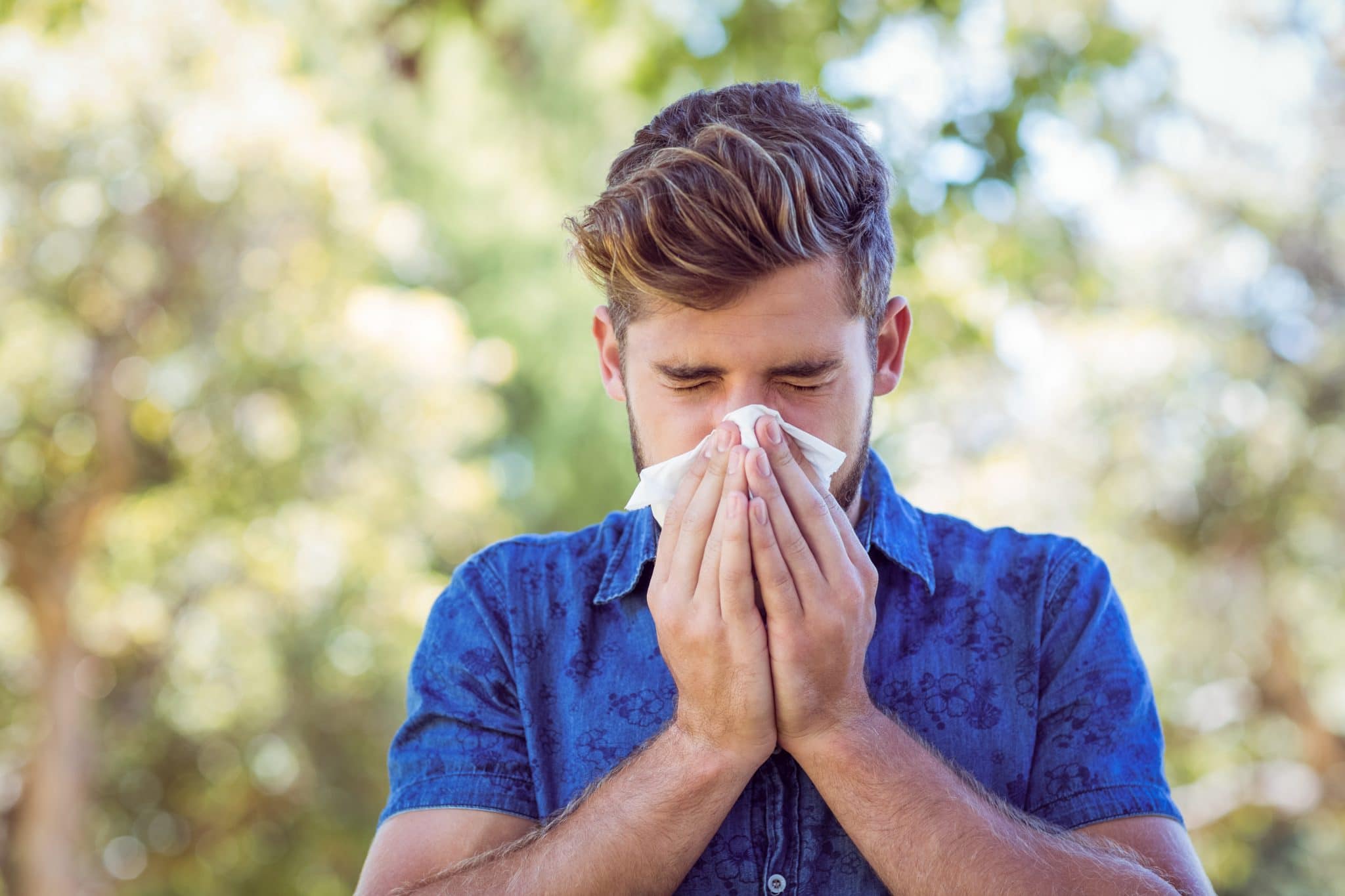If you never had a problem with allergies growing up, but now find yourself experiencing watery eyes and a runny nose every time you take a walk through Hampton Park, you’re not alone. While allergies most commonly develop in childhood, people can develop new allergies well into adulthood.
How Allergies Develop

Allergies develop in two phases. In the first phase, your body comes into contact with a harmless substance, like pollen or pet dander, and mistakes it for something harmful. In response, you make allergic antibodies, called IgE antibodies, to fight that substance. This phase is called sensitization.
The second phase happens when you are exposed to the allergen for a second time. The allergen binds to the IgE antibodies and causes allergy symptoms like sneezing and congestion.
Common adult allergies include:
- Seasonal allergies like hay fever
- Pet allergies
- Food allergies to things like seafood and tree nuts
Why Do Some Adults Experience New Allergies?
It’s not always clear why a person develops allergies in adulthood, but there are a few possibilities, including:
- Relocating to a new environment where you may be exposed to allergens you previously had not come in contact with.
- Having a pet for the first time.
- Having little exposure to an allergen as a child.
- Being exposed to an allergen when your immune system is weakened or compromised.
What to Do
Occasionally, allergies that develop as an adult may disappear once again, especially as you get older and your immune system tends to not react as strongly as it did when you were younger. However, if your allergies are here to stay there are several different treatment options that can help to relieve your symptoms.
- Over-the-counter antihistamines, ideally taken before you are exposed to the allergen.
- Visit an allergist. If OTC medications aren’t effectively managing your allergies, it might be time to see a specialist. An allergist can run blood and/or skin tests to correctly identify your triggers and help develop a treatment plan that works for you.
- Immunotherapy in the form of shots or drops can help you slowly build up your immunity to allergens so that eventually you no longer have a reaction.
If you are experiencing new allergy symptoms as an adult, know you don’t have to suffer without help. Schedule an appointment with Charleston ENT & Allergy today.
